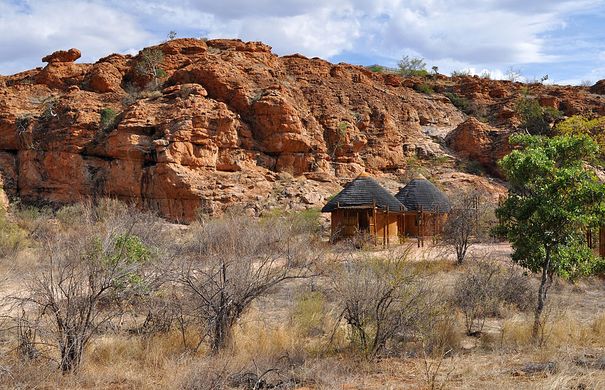Before Europeans reached South Africa, the region was inhabited by various indigenous peoples, including the Khoikhoi (or Khoekhoe) and San (or Bushmen) communities.
These groups had their own cultures, languages, and ways of life. The Khoikhoi were pastoralists, herding livestock, while the San were hunter-gatherers, relying on hunting and gathering for sustenance. The region’s history also included interactions with Arab and Asian traders and migration and conflict among indigenous groups. It’s important to note that this history spans many centuries and involves complex interactions.

Here are 10 notable events:
- San and Khoikhoi Settlement: The San and Khoikhoi peoples inhabited the region for thousands of years, establishing their unique cultures and ways of life, including hunting and gathering for the San and pastoralism for the Khoikhoi.
- Bantu Migration: Bantu-speaking groups began migrating into South Africa around 2000 years ago, bringing with them advanced agricultural practices and Iron Age technology. This migration led to the formation of numerous Bantu kingdoms and societies throughout the region.
- Great Zimbabwe Trade Network: Great Zimbabwe, a powerful kingdom in present-day Zimbabwe, played a significant role in the trade networks of pre-colonial southern Africa. The kingdom’s control of key trade routes facilitated exchanges of goods, including gold, ivory, and ceramics, throughout the region.
- Mapungubwe Kingdom: The Mapungubwe Kingdom, located in present-day South Africa, existed from the 9th to 13th centuries. It was a prosperous state known for its trade connections, skilled craftsmanship, and extensive gold trading networks.
- Rise of the Zulu Kingdom: In the early 19th century, the Zulu Kingdom, under the leadership of King Shaka, emerged as a dominant power in southern Africa. Shaka implemented military reforms, expanding the kingdom’s influence and creating a centralized state.
- Nguni and Sotho Kingdoms: Alongside the Zulu Kingdom, other Nguni and Sotho kingdoms, such as the Xhosa, Swazi, and Sotho-Tswana states, flourished in pre-colonial South Africa. These kingdoms developed complex political systems, trade networks, and artistic expressions.
- Contact with European Explorers: The arrival of European explorers, particularly the Portuguese, in the late 15th century marked the first direct contact between the indigenous populations and Europeans. These interactions initiated the process of European colonization and disrupted existing social dynamics.
- Interactions with Dutch Settlers: The establishment of the Dutch settlement at Cape of Good Hope in 1652 brought significant changes to the region. The Dutch settlers interacted with indigenous groups, leading to cultural exchange, trade, and conflicts over land and resources.
- Xhosa Wars: In the early 19th century, a series of conflicts known as the Xhosa Wars took place between the Xhosa kingdom and British colonial forces. These wars profoundly impacted the Xhosa people and the broader dynamics of power in the region.
- Resistance and Adaptation: Throughout the pre-colonial period, indigenous communities exhibited resilience, resistance, and adaptation in the face of changing circumstances. They developed strategies to navigate interactions with European settlers and maintain their cultural identities and ways of life.





Leave a Reply
You must be logged in to post a comment.